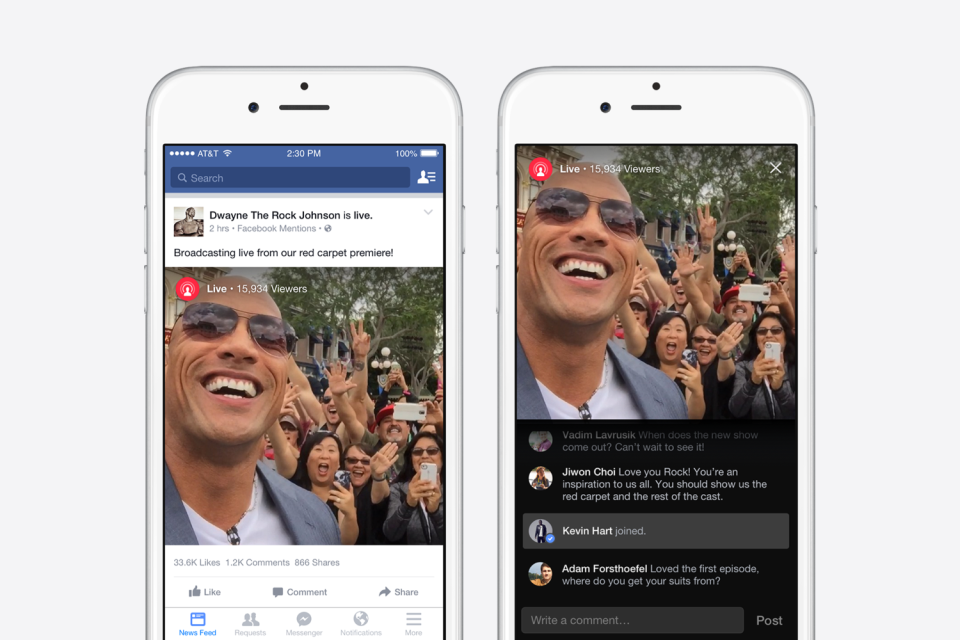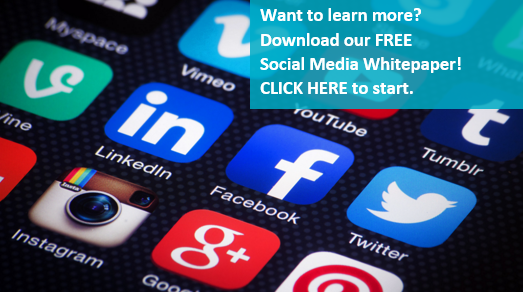Twelve years ago, Facebook registered its first users at Harvard University, with no idea how large the now popular social site would grow. Fast forward to present day, where over 1.23 billion people gather to interact with their friends, family, and favorite brands. Facebook would not be where it is today without innovation, which has given them an undoubtable edge over their competition. Each year, Facebook holds an annual conference, called “F8,” where developers and entrepreneurs with connections to the social site gather to hear about new features, brainstorm additional ideas, and attend specific break-out sessions related to their expertise.
This year, the F8 conference took place on April 12-13th in San Francisco and some groundbreaking features were announced by CEO Mark Zuckerberg. Here are four of the biggest changes that we can expect to see on Facebook after the 2016 F8 conference.
1. Bots Are Taking Over
Robots are in. Not the kind that clean your house while you’re at work, but ones that can give you information in a second. Facebook announced “Messenger Platform”, a chatbot application that lets anyone create bots for the messenger app. The chatbot could take the place of several additional apps, letting consumers use a more natural way to interact with businesses to do things like book a flight, order pizza, or buy a new pair of shoes by simply messaging the company.
If you are curious about how it works, open up your messenger app and send a message to CNN – they’re one of the company’s currently beta-testing chatbots. Although chatbots aren’t anything entirely new to the industry, they are becoming increasingly popular as brands want to better serve every single one of their customers in the most efficient way. Chatbots wouldn’t completely erase human interaction, but could allow brands to be more responsive to their consumer wants and needs.
2. New Ways to Share Video
In addition to split second bot communication, Facebook also announced that the Facebook Live API will be publicly available allowing real-time video streaming among all users. Much like Twitter’s Periscope, Facebook Live lets people share their experiences live with friends, family, or fans. They can interact by having commenting on the live event creating a conversation between everyone involved in the live video.
Is this useful to businesses and marketers? You bet! Facebook Live will allow brands to stream events like sales, product demos, and explain future events and opportunities to their consumers. The main challenge Facebook Live presents is the fact that creation and consumption happen simultaneously leaving little room for error. Businesses can overcome this challenge by planning out specific details in advance on what they want to show and say in their live video. Facebook Live has the ability to create a much more personal connection between companies and their customers which will hopefully cultivate much deeper brand loyalty.
3. An Easier Way to Interact with Content
The internet is full of content, which can be a little overwhelming at times. In order to simplify the lives of digital web surfers, Facebook announced a new feature called “Save to Facebook,” which allows users to save websites and articles straight to their Facebook account for later viewing. It has a similar functionality to the Pocket app, but allows users to save content without downloading a separate app.
In addition to saving, Facebook also announced a “Quote to Facebook” feature that allows someone to share a tidbit of information by simply highlighting the information they want to share and clicking “Share Quote.” The new features, although simple, will lead people to spend even more time on the site or in the app which can benefit brands and marketers who use the platform to share ads and content.
4. Virtual Reality and Beyond
As Facebook’s size continues to grow, newer ways to interact within the platform and online are expected to be introduced. One of the new ways of interaction is through virtual reality, which lets users exist and intermingle in a whole new dimension through wearable technology. Zuckerberg showed off a handset expected to be released later in 2016 that would allow the wearer to touch objects and interact with people in a virtual space. In the next 10 years, Facebook users can plan to see much more technology introduced related to virtual reality and wearable technology which will vastly change the way people interact with each other around the world.
Just the Beginning
Facebook doesn’t seem to be dying out anytime soon. Through technology and innovation, Facebook has continued to be a leader in social interactions. Whether it’s through chatbots, virtual reality, or live video, the way people communicate with each other and their favorite brands, will continue to change and become more personal. It’s more important than ever to stay up to date and relevant as new technology keeps users on your site and apps for a longer period of time. If you’re interested in how to start building your brand on social media, download our Social Media Whitepaper or contact us with any questions.
